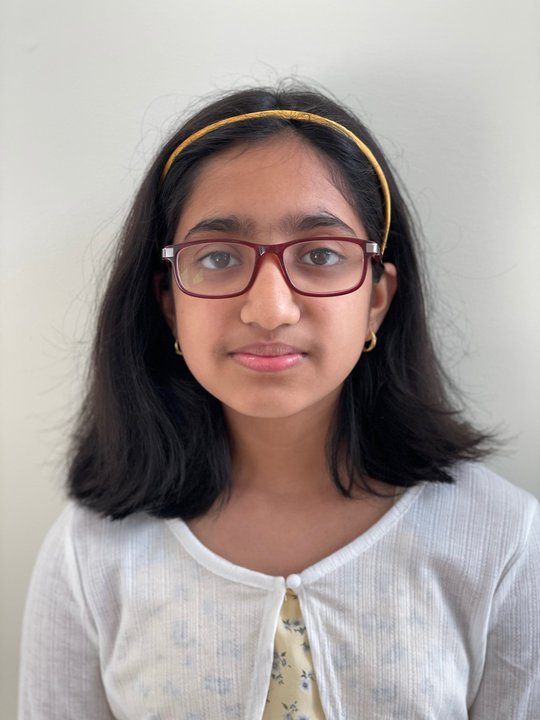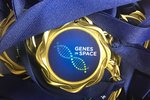GiS Spotlight: Junior Scientist awardee Isha Venkatesh
Each year, we honor 5 outstanding submissions from 7th and 8th graders with Junior Scientist Awards. Of the 602 submissions we received this year, more than 250 were contributed by middle schoolers, so the competition was stiff!
Today, we shine the GiS Spotlight on one JSA winner: Isha Venkatesh (12) from The Newman School in Boston, MA, who wanted to understand the effects of extended exposure to microgravity on neural proteins.
What was the focus of your experiment? My experiment tests how the International Space Station’s extreme temperatures and microgravity impact proteins accumulated in memory regions of the brain. The two specific proteins I chose were tau proteins and beta-amyloid proteins.
Why did you choose to participate in Genes in Space? I had read about how astronauts have a host of health issues when they come back to Earth, some even arising decades later. When I heard about the competition, I was immediately interested since the experiments are based around how our bodies are affected by space.

How did you choose your topic? I have always been fascinated with memory and the brain. I started out by researching about how memory is affected by microgravity but couldn’t find much information. Experiments have been run on how organs react to the International Space Station’s environment, as done by Dr. Arun Sharma. He tested how heart cells are affected by microgravity. When I heard about Dr. Arun Sharma’s work I wondered if a similar experiment had been done for proteins associated with memory. After more research, I chose my topic and started designing my experiment.
What did you gain by participating in Genes in Space? Entering the competition gave me the opportunity to research about genes, proteins, and the environment of space which I learned so much from. I learned about the uses of each tool in the tool kit. For example, before Genes in Space, I didn’t know about how PCR worked.
Do you have any advice for future Genes in Space contestants? My advice would be to base your experiment around something that you are interested in. This is something you are going to research a lot about and it’s easier to put in time and effort for something that sparks your curiosity.


